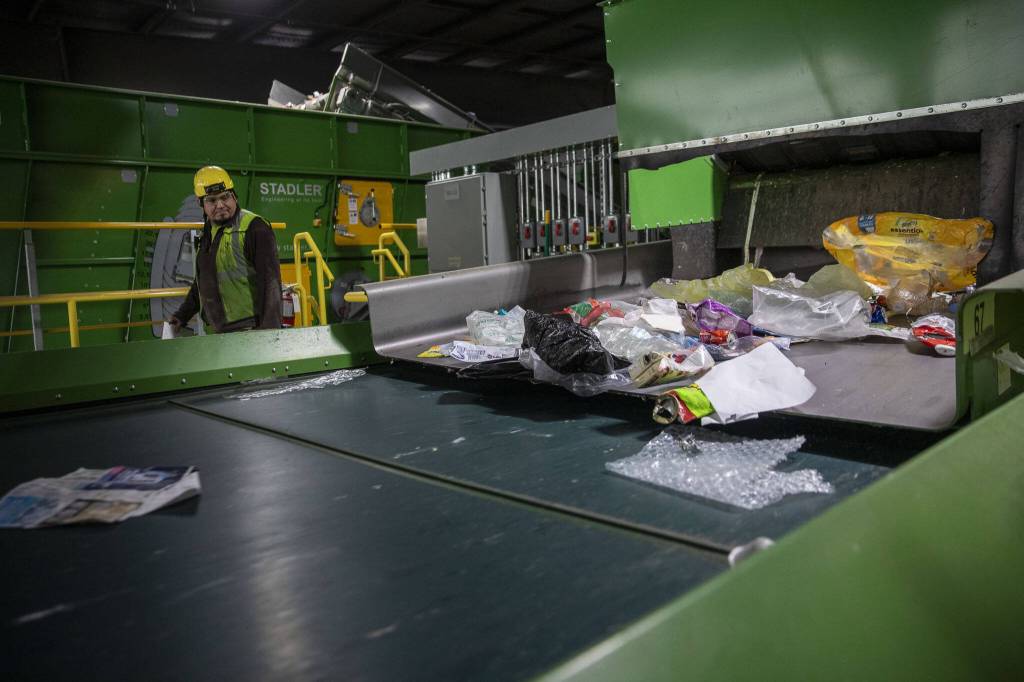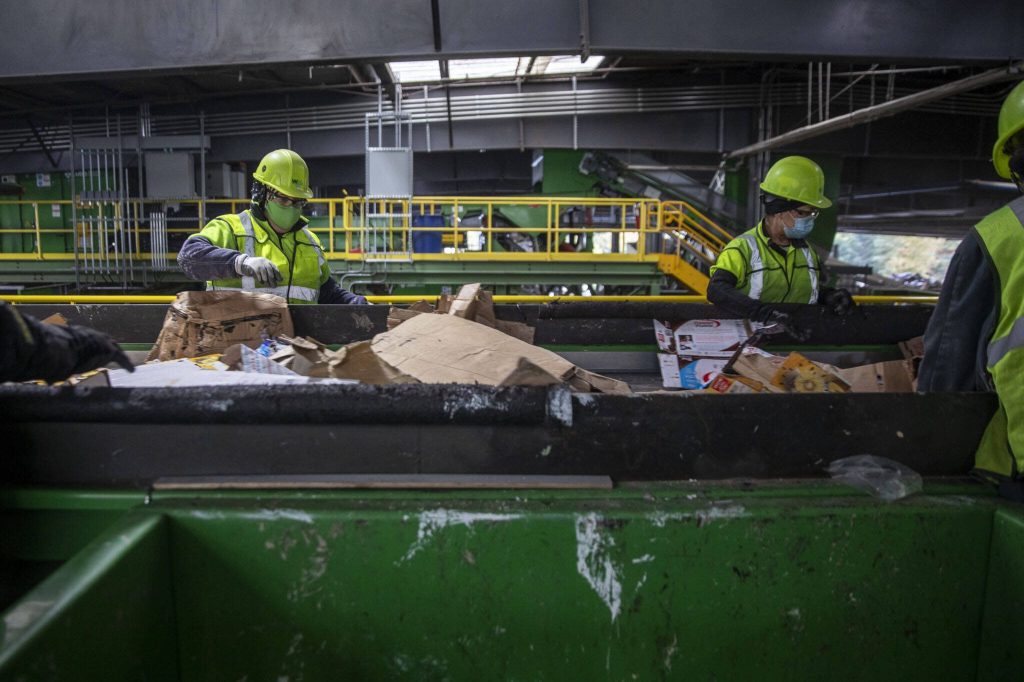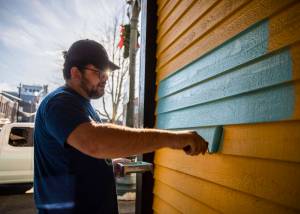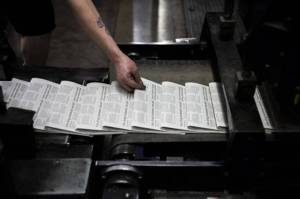Editorial: Recycling bills could use a little reuse, refocus
Published 1:30 am Tuesday, January 30, 2024


By The Herald Editorial Board
It’s not that Washingtonians, who pride themselves on their environmental cred, are doing a poor job at recycling, tossing paper, cardboard, cans, glass and plastic bottles in recycling bins rather than garbage bins.
But the state’s recycling rate — like a plastic milk jug that hasn’t been properly rinsed out before being recycled — it’s a little, well, stagnant.
With a overall recycling rate of 25 percent of packaging material, it ranks 15th among states, trailing leaders such as Maine at 65 percent, Massachusetts at 48 percent and Oregon at 45 percent, according to a state-by-state 2023 report, commissioned by the Ball Corp., which produces aluminum packaging. And the state has been stuck in the middle for a number of years
Looking to boost the state’s recycling numbers, two pieces of recycling.legislation — each with bipartisan support but different approaches — have been under consideration by the state Legislature, now three weeks into its 60-day session. With a key deadline passing today, only one of the bills now appears likely to move forward.
But a third bill, and provisions of the failed bill, could be recycled and reused together successfully.
House Bill 1900, with a goal of increasing the state’s recycling rate to 60 percent, would hold the manufacturers of packaging material accountable for increasing the amount of recycled content in their packaging by requiring packaging makers to report the types of packaging sold and distributing to the state Department of Ecology for further study of the state’s recycling efforts. The bill was heard before the House Committee on Environment and Energy earlier in the month, but as of Monday’s deadline had not been voted out of committee.
House Bill 2049, which was voted out of the environment committee and is now scheduled for a hearing in the appropriations committee later this week, looks to achieve the goal by increasing consumers access to recycling, requiring packaging producers to fund operations to collect and manage recyclable packaging, while also requiring packaging to include more recycled content.
The proponents of HB 2049 and its “extended producer responsibility,” point to its success elsewhere, including Western Europe, British Columbia and several states, including Maine, Oregon, California and Colorado, which have passed the requirement in the last two years. Except for Colorado, the other three states rank higher than Washington in the state-by-state comparison.
HB 2049, first proposed last year as the Washington Recycling and Packaging Act and now recycled as Re-WRAP, is backed by environmental groups, including Audubon Washington, while HB 1900 has support of the recycling industry, including the Washington Refuse & Recycling Association. Spokespersons for each provided commentaries published Saturday in The Weekend Herald.
Key to the ReWRAP Act’s success, wrote Adam Maxwell, is its tiered-fee structure that will fund the expansion of recycling processing and collection to some 360,000 households that do not currently have curbside recycling.
“By incentivizing producers to embrace reusable, recyclable, or compostable packaging, the act seeks to reduce pollution contributing to climate change. This involves setting targets to decrease the amount of plastic in packaging materials, promoting recycling rates, and encouraging reuse and refill initiatives,” wrote Maxwell.
However, Brad Lovaas, executive director for the recycling association, argues that more information is needed on the state’s recycling needs, allowing it to guide investments that support collection and processing of recyclables in specific areas.
The state’s recycling industry, which employs about 14,700 workers, can be strengthened, Lovaas wrote, with HB 1900’s provisions.
“Our public-private partnership with residents and local governments has afforded businesses and residents an economically and environmentally sustainable system that is convenient and relatively low-cost,” he wrote. “For residents, it equates to approximately 33 cents a day on average to pick up, sort and find buyers for recyclable materials. Any legislative proposal to increase recycling should protect you from higher costs.”
The main disagreement in the two approaches is who will end up paying for the expansion of recycling services. Those backing HB 2049 don’t deny increased costs for packaging producers, but say that the tiered-fee system should encourage those producers to find alternatives to materials that aren’t economically recyclable or instead use less packaging. Those backing HB 1900 are concerned, however, that increased costs for packaging are too easily shifted to consumers.
The Ball Corp. study, notes challenges with a system that relies on producer liability, which it says is unlikely to maximize recycling rates on its own. At the same time, the use of recycling refund programs, such as bottle deposit-and-return programs, haven’t increased recycling rates in the nation’s Northeast.
The study, instead, sees potential in combining the two programs.
Recycle-return legislation, HB 2144, has been proposed this year. The bill would launch a deposit-return program, run though distributors. That legislation has passed out of the environment committee and is scheduled for a finance committee hearing Thursday.
The study estimates that pairing the deposit-return and producer-responsibility bills would result in 1.5 million tons of additional material being recycled over a 15-year period, compared to producer-responsibility alone, because the two streams of recyclables — beverage containers and residential recyclables — would support their own costs. As well, a deposit-return program would take less time — two to five years — to implement, compared to the five to eight years necessary for the producer-responsibility program, and would result in an increase in the collection of beverage containers more quickly.
Combining the two efforts, the study estimates, would in time result in a 79 percent recycling rate for the state. As well, the combination would create about 8,400 jobs in Washington and would reduce greenhouse gas emissions from packaging production by 23 percent.
At the same time, however, HB 1900, also offers something of value through its further study and collection of data on the recyclable material being produced and how best to collect and process it, for recycling and reuse.
Adding provisions for further study, while adopting the deposit-return legislation and its quicker ramp-up to implementation, offers the state a good shot to recycle, reuse and reduce at a level that meets everyone’s environmental expectations.





